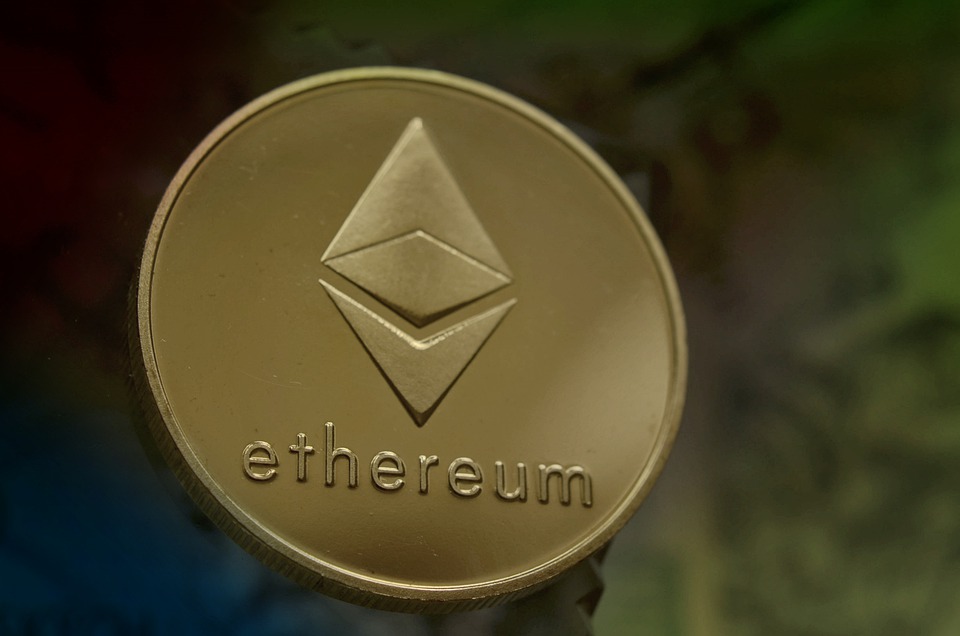Founded in 2013 and launched in 2015 by Vitalik Buterin and Garvin Wood, Ethereum is a decentralized open-source blockchain system that features its cryptocurrency, Ether.
Ethereum ranks second in market capitalization after Bitcoin, with a circulating supply of 117,959,821 coins and an infinite maximum supply of coins. Ethereum’s uniqueness underlies in its being the pioneer of the blockchain smart contract platforms concept. Its interoperable features allows it to work as a base platform for launching numerous other cryptocurrency networks, and also support the execution of various decentralised smart contracts such as NFTs and DeFi contracts.
Smart contracts are programs that automatically execute necessary actions to accomplish an arrangement between parties on the internet. They are intended to minimize the requirement for third parties between contracting parties thus cutting down on transaction costs and increasing transaction security. Its ERC-20 compatibility feature is central to the ETH network being able to host other cryptocurrencies known as tokens. Over 280,000 ERC compliant tokens are already running their networks on top of Ethereum with some falling in the top 100 by market-cap such as USDT, UNISWAP, USDC, LINK and BNB.
Ethereum Improvement Proposals(EIPs)
High transaction fees and scalability issues have been some of the biggest problems plaguing the Ethereum network. These have been mainly experienced during seasons of high demand prompting users to transfer Ethereum network applications to networks such as Solana, Binance Smart Chain and Heco to cut down on transaction costs and scale up transaction speeds.
For this reason, ETHER’s developer community has come up with the Ethereum Improvement Proposals (EIPs) program which allows coders to propose and work on improving standards for the Ethereum platform, including core protocol specifications, client APIs, and contract standards.
Enter EIP-1559
The most notable and recent upgrade on the Ethereum network is the EIP-1559 better known as the London Hard Fork in August 2021.
The improvement which included five EIPs namely EIP-3529, EIP-3198, EIP-3541, and most notably EIP-1559 and EIP-3554 seeks to gradually transition the network from a proof of work (POW) to proof of state (POS)mechanism.
Previously, the network was secured on the Ethash Proof of Work algorithm before another upgrade, Ethereum 2.0 Beacon Chain (Phase 0) went live on mainnet in December 2020. This upgrade essentially helped secure the network with processing transactions, storing data and adding new blocks to the blockchain.
It however still posed a problem for users as they either underpaid or ended up overpaying for gas fees which resulted in their transaction not being included on-chain or taking longer to be included.
EIP-1559 was set to resolve this by ensuring that users can know what fees to pay and can be instantly included on-chain upon paying. In addition, EIP-1559 greatly reduces the value that can be extracted by miners or validators by burning some of the transaction fees that would otherwise potentially be used as fuel for re-orgs.
EIP-1559 introduces a “base fee” for transactions to be included in the next block, phasing out the previous first-price auction mechanism that gave preference to the highest bidder. Users who want their transactions prioritized on the network can “tip” or pay a “priority fee” to miners.
However, please note that “As the base fee adjusts dynamically with transaction activity, this reduces the volatility of Ethereum gas fees, although it does not reduce the price, which is notoriously high during peak congestion on the network.”
Ethereum Staking
Staking is the act of depositing a minimum of 32 ETH to activate validator software. These coins are locked up on the network until the Ethereum 2.0 upgrade is over. Validators/Stakers are responsible for storing data, processing transactions, and adding new blocks to the blockchain. This keeps Ethereum secure for everyone as validators earn you new ETH in the process. This process, known as proof-of-stake, is being introduced by the Beacon Chain.
Staking rewards on the Ethereum network are based on the participation of stakers. Whereas early stakers would rake as much as 20% in rewards, this is set to be lowered annually to sit in the 7%-4% range.
Ethereum’s uniqueness underlies in its being the pioneer of the blockchain smart contract platforms concept. Its interoperable features allows it to work as a base platform for launching numerous other cryptocurrency networks, and also support the execution of various decentralised smart contracts such as NFTs and DeFi contracts.
Number of Contributors
Ethereum is an open source network with thousands of community contributors globally. Currently, around 168 energetic code builders actively engaged in building and updating code per month.
Number of Issues
Issues lets the community track work on the ethereum network. Once an individual mentions an issue in another issues or a pull request, the issues timeline brings out all the work that is related to it, helping engineers keep track of related work.
Currently, there are 188 open issues on go-Ethereum with 5801 issues having been closed. There are also 89 open pull requests with 6731 having already been acted upon.
Number of Commits
Commits help track staged changes being along a timeline to a code. Its simply points at a projects underlying health by showing how aggressive or committed the dev team is at updating their projects (a key consideration for the projects supporters)
Ethereum has about 447 commits per month on github code repositories and over 12,800 commits so far in 2021. Devs also have an over 83% backlog clearance uptake which is great score when it comes to resolving bug and code problems on any particular blockchain network
Number of Releases
So far there are 88 core released working executables which mainly aim at lowering gas fees and streamlining the lauch and execution of smart contracts on the Ethereum network.
9 projects are in the “last call” which is the final review window for an EIP before moving to FINAL. 15 projects are still under the community’s review, 208 stagnant while 22 have been withdrawn for various issues. To view more click here
Number of Forks
A number of forks have been implemented on the ethereum enroute to transitioning Ethereum into a full Proof of Stake network. EIPs describe standards for the Ethereum platform, including core protocol specifications, client APIs, and contract standards.
Currently there are 766 EIPs in total, and whereas some are still pending, in August 2021, the most notable upgrade,the EIP-1559 better known as the London Hard Fork went live on mainnet resolving delay and fee problems experienced by miners.
In lated October 2021, Altair, the first beacon chain network upgrade was also launched on the network and will later be merged with other smaller upgrades in moving Ethereum from a POW to POS consensus once all the work is completed.
Ethereum Staking
In controlling price, Ethereum has a staking ptogram that allows validators to lock up at least 32 ETH. These coins will be locked up on the network until the Ethereum 2.0 upgrade is over.
Validators/Stakers are responsible for storing data, processing transactions, and adding new blocks to the blockchain. This keeps Ethereum secure for everyone as validators earn you new ETH in the process. This process, known as proof-of-stake, is being introduced by the Beacon Chain.
Staking rewards on the Etherum network are based on the participation of stakers. Whereas early stakers would rake as much as 20% in rewards, this is set to be lowered annually to sit in the 7%-4% range.
PN: “This data is not final and may be updated fro time to time”

